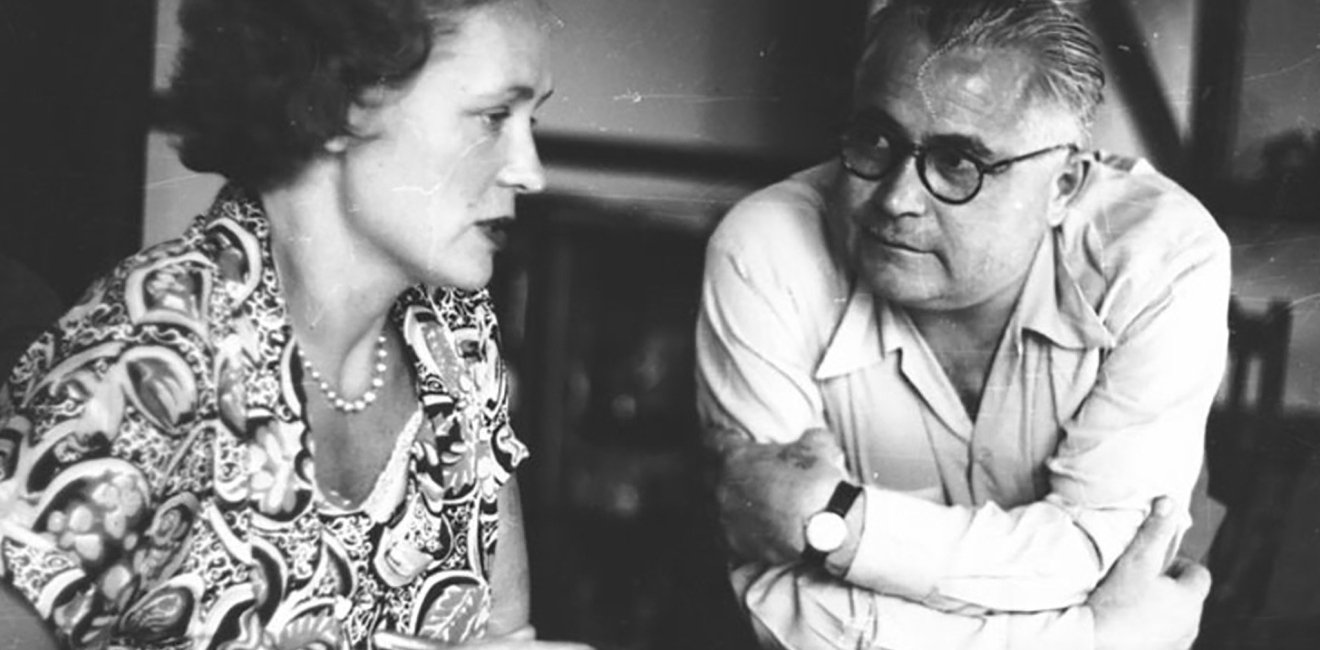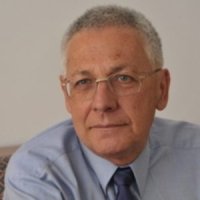Vladimir Petrov and Evdokia Petrov inside the safe house in which they were held following their defection to Australia in 1954.
In the run-up to the 1956 Olympic Games, Australia’s security agency, ASIO, expected that the KGB would infiltrate the event
Olympic Games, Australia’s security agency, ASIO, assessed the risks. They expected that the KGB would infiltrate the event, planting its agents among the support staff for the Soviet team. However, those agents' main job, in all likelihood, would be to stop athletes defecting and they were unlikely to threaten Australia’s security. As it turned out, ASIO's biggest problem during the games would not be new infiltrators from abroad, but a known KGB agent already living in Australia.
Two years earlier, KGB colonel Vladimir Petrov had defected to Australia. Petrov had been sent to Australia to penetrate local anti-Soviet organisations and to recruit and run Australian agents. His wife, Evdokia also defected. She was a KGB captain responsible for handling top-secret cable traffic. They had extensive knowledge of Soviet espionage operations around the world, which proved extremely valuable to ASIO, MI6 and the CIA.
Vladimir Petrov was convinced that the Kremlin would avenge his betrayal. He particularly feared KGB’s 13th Department, which was tasked with abductions and assassinations. In Empire of Fear, written before the Olympic Games, Petrov alerted his readers to the activities of the "assassination department," presumably referring to the 13th Department. He wrote that should he or his wife die suddenly "the whole world will know that our death was deliberately planned by a Government which regards political murder as a normal way of dealing with those who differ from it."
Petrov convinced ASIO that the threat to his life was credible, and it whisked Vladimir and Evdokia away to a safe house in Surfers’ Paradise, 1,700 km north of Melbourne.
What should have been a simple operation soon spun out of control.
They were relocated to an apartment on the second floor, just ten minutes from the beach. Their chaperones, guards really, were ASIO operatives Joan and Douglas Dougherty.
At around 8 pm on 27 November, the Petrovs were in the kitchen arguing, after which Vladimir stormed out of the apartment. The Doughertys did not hear him leave the apartment.
What should have been a simple operation soon spun out of control.
There are two versions of what happened next.
According to Vladimir, he went to a nearby pub, had a couple of beers and was attacked as he returned home. He was then picked up by police and released at 5 am. This story was a concoction, a habit that was second nature to the ex-KGB agent.
ASIO pieced together the true story from witnesses. After leaving the house, Petrov went to the Surfers Paradise Hotel where he had quite a few more than a couple of drinks. Sometime after 9 pm, Petrov entered an upstairs apartment at Clifford Court where he heard music and possibly assumed that a party was in progress; a party with free booze. The occupier of the apartment, Sergeant Bill Thompson, an army man, told Petrov to leave. When he refused, Thompson tried to force him out. Soon two neighbours joined the fray with Petrov putting up a game fight against the odds. After a wild swing Petrov fell on his face, after which the three men jumped on him and held him down.
When the police arrived at 9:45 pm, they found a portly man, agitated, wearing just his underpants and shirt. They handcuffed him and threw him into the back of the police van. At the Southport police station, he was charged with being drunk and disorderly. In his statement he gave his name as “Jack Olson” and told police that he believed he was entering his own apartment, but refused to give them the address of where he lived. After spending the night in a cell to sober up, the police released Petrov at 5 am after he posted 10 shillings for bail.
The only injuries Petrov sustained were a lacerated lip, abrasions to his ribs and back and a bloody nose. Thankfully, by the morning he had been reunited with his trousers.
ASIO immediately went into damage control. Its director-general, Colonel Spry, spent the rest of the day trying to piece together what had happened to his prize defector. Once he had the facts, he wrote a grovelling letter to Robert Menzies that started: "My dear Mr Prime Minister. No doubt you have seen in the newspapers a report to the effect that a person, who gave his name as V. PETROV, was charged with drunkenness in the Southport police court on 28 November, 1956. I regret to say that the person concerned was our Vladimir PETROV." In his letter, Spry accused both Petrovs of being "psychopathic," but he carefully stepped around taking responsibility for the fiasco.
Spry understood the politics and knew that the government would be most unhappy with ASIO over this incident. In May 1954, the Menzies government had narrowly won the election off the back of an anti-communist scare campaign it unleashed in the wake of the Petrovs’ very public defection. Should this incident reveal Petrov was an alcoholic then his reliability might be questioned.
On the same day, Spry wrote a searing letter to Vladimir Petrov. "I personally am fast reaching the end of my tolerance and sympathy for your predicament. You have received a great deal from our country; safety, protection, subsistence, and many kindnesses. Any further acts such as this will utterly destroy my little remaining patience’ Spry ended his letter by warning that if there was ‘another scandalous act, I intend to reconsider your position in relation to my Service." Petrov was being threatened to be turned out into the cold, a possibility that terrified him. Without ASIO’s protection, Petrov was convinced that sooner or later the KGB would find and kill him.
On 30 November the Petrovs and their minders were discreetly transferred to a new safe house in Caloundra and there were no further incidents.







